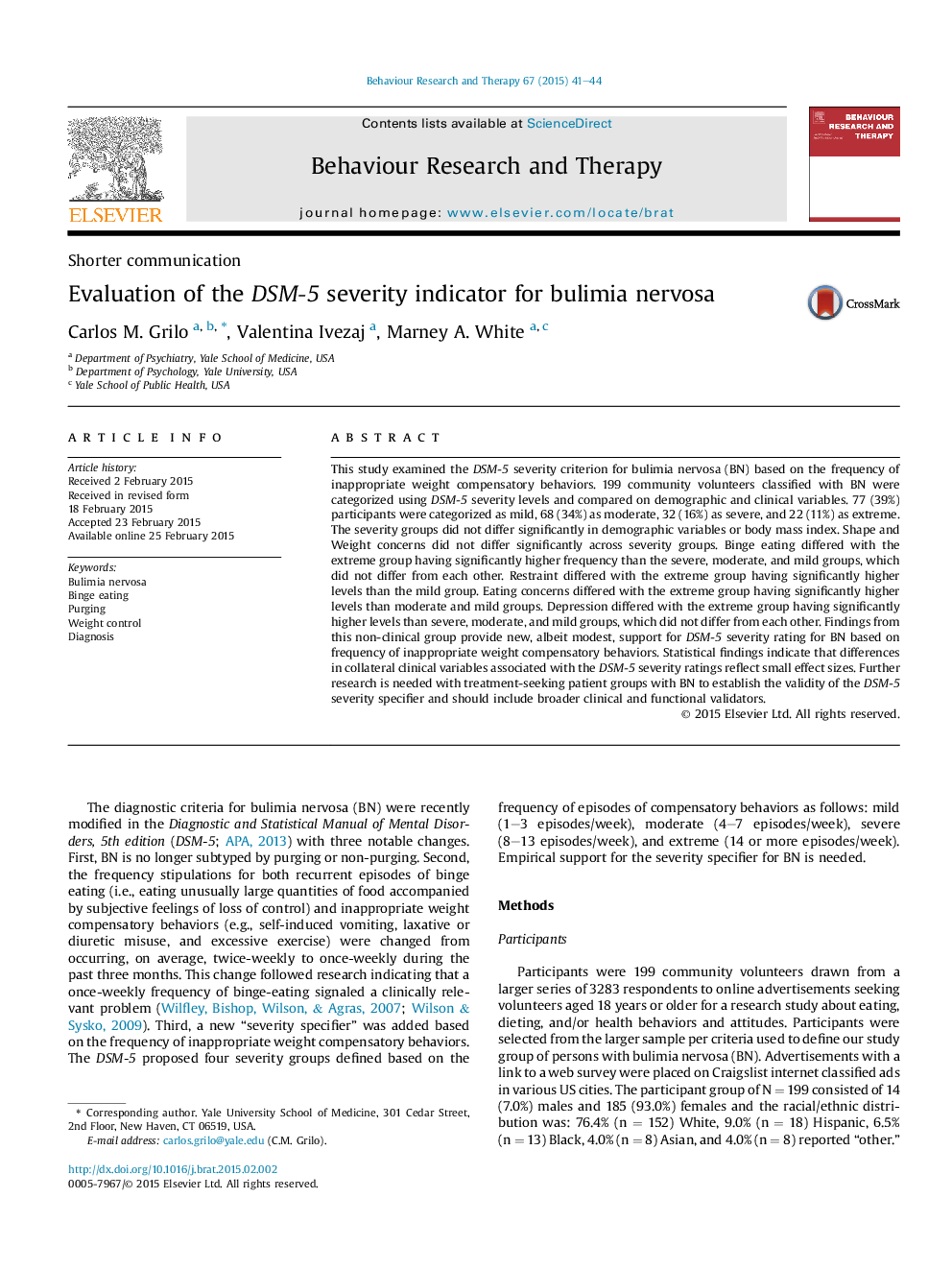| Article ID | Journal | Published Year | Pages | File Type |
|---|---|---|---|---|
| 901827 | Behaviour Research and Therapy | 2015 | 4 Pages |
•Bulimia nervosa (BN) diagnosis was revised in DSM-5.•Examined DSM-5 severity specifier of inappropriate weight-compensatory behavior frequency.•Findings provide new, albeit modest, support for DSM-5 severity specifier for BN.•Differences between DSM-5 severity groups reflect small effect sizes.•Further research is needed with treatment-seeking patient groups with BN.
This study examined the DSM-5 severity criterion for bulimia nervosa (BN) based on the frequency of inappropriate weight compensatory behaviors. 199 community volunteers classified with BN were categorized using DSM-5 severity levels and compared on demographic and clinical variables. 77 (39%) participants were categorized as mild, 68 (34%) as moderate, 32 (16%) as severe, and 22 (11%) as extreme. The severity groups did not differ significantly in demographic variables or body mass index. Shape and Weight concerns did not differ significantly across severity groups. Binge eating differed with the extreme group having significantly higher frequency than the severe, moderate, and mild groups, which did not differ from each other. Restraint differed with the extreme group having significantly higher levels than the mild group. Eating concerns differed with the extreme group having significantly higher levels than moderate and mild groups. Depression differed with the extreme group having significantly higher levels than severe, moderate, and mild groups, which did not differ from each other. Findings from this non-clinical group provide new, albeit modest, support for DSM-5 severity rating for BN based on frequency of inappropriate weight compensatory behaviors. Statistical findings indicate that differences in collateral clinical variables associated with the DSM-5 severity ratings reflect small effect sizes. Further research is needed with treatment-seeking patient groups with BN to establish the validity of the DSM-5 severity specifier and should include broader clinical and functional validators.
